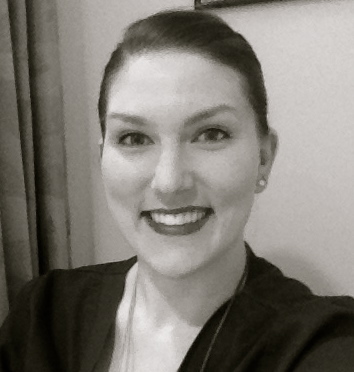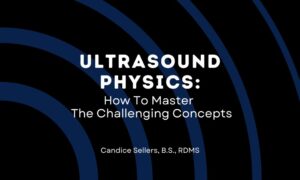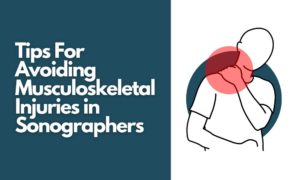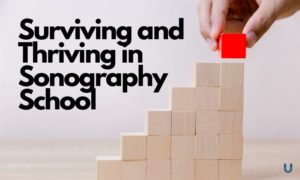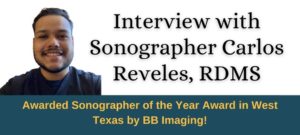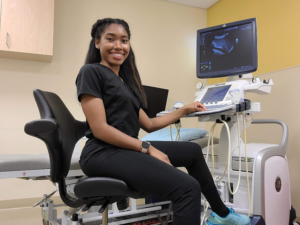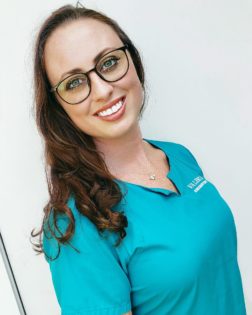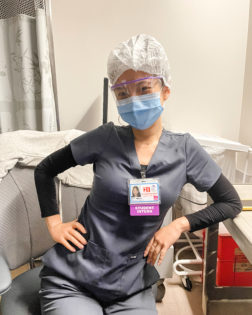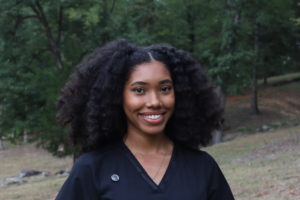UltrasoundSchoolsInfo.com is thrilled to have interviewed Chelsey Wright, BS-MIRS, RDCS (AE, PE), RDMS, as she provided such great insight into what it is like to go to school for, and work in, the sonography profession.
As you can see by her credentials, she completed a Bachelor of Science in Medical Imaging and Radiation Sciences and has earned the ARDMS credentials Registered Diagnostic Cardiac Sonographer (RDCS) (in both Adult and Pediatric Echocardiography) and Registered Diagnostic Medical Sonographer (RDMS).
She also wrote a scholarly article, based on distinctive research she conducted, that has been one of the most popular pieces published in SDMS’ Journal of Diagnostic Medical Sonography in the last few years.
CW: BS-MIRS is the updated equivalent of BSRT used at the University of Oklahoma where I received my degree. At OU the degree is didactic, meaning we attended classes alongside our clinical training. This regimen is invaluable to the learning experience.
Our program covered the full range of the field of sonography, including cardiac, vascular, obstetrics, gynecology, neurosonology, abdomen, and invasive procedures, as well as a heavy emphasis on patient care.
CW: I am currently an echocardiographer at the Virginia Commonwealth University Health Systems in Richmond, Virginia.
At VCUHS we perform exams to evaluate for everything from valve replacements, heart transplants, and LVAD (left ventricular assist device) placements to adult congenital issues, murmurs, and pre-surgical clearance. We work in conjunction with multiple ICUs, inpatient services, and the emergency department, as well as clinics and outpatient services.
CW: An interstitial ectopic pregnancy (IEP) is a rare form of ectopic pregnancy that occurs when a pregnancy forms in the interstitial portion of the fallopian tube that joins into the muscular wall of the uterus. IEPs have a significantly increased risk of maternal morbidity secondary to the increased vascularity of the area, which allows for more substantial and potentially life-threatening hemorrhage.
CW: I chose to research interstitial ectopic pregnancies when I was on a clinical rotation as a student. One of my clinicians showed me an exam where a woman had just been diagnosed with an interstitial ectopic pregnancy.
After the sonographer told me about how dangerous and difficult to image this particular form of ectopic pregnancy could be I became interested in learning the best way to image these pregnancies. Correctly imaging and diagnosing ectopic pregnancies can potentially save a woman’s life.
CW: I am very passionate about the sonography profession. Sonography really allows for a great deal of patient interaction, something that drew me to the profession to begin with. During an exam I’m able to talk with the patient, really hear what problems they’ve been experiencing, and get a better idea of their symptoms.
I’m able to use that information to target my exam and relay that on to the physician. Also, in few other modalities is the quality of the exam truly dependent on the technologist performing the exam; this facilitates a greater amount of involvement and cooperation with the physicians, which only helps to benefit the patient. A skilled sonographer is invaluable to the health care team.
CW: If considering going to school to begin a career in sonography or other imaging modalities the best piece of advice I have is to really research your options and select a program that is accredited.
Accredited programs ensure you are receiving the best education possible, and upon completion of the program you are immediately eligible to sit for the registry. This is especially important in a competitive job market as many employers require employees either be registered upon hire or become registered within a short amount of time.
Also, be open-minded in your selection of specialty. Learn as much as you can about all the different fields of sonography and make your choice of specialty based on your strengths and interests. The great thing with sonography is if you maximize your learning early on you can really broaden your employment opportunities later on.

